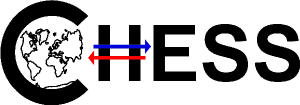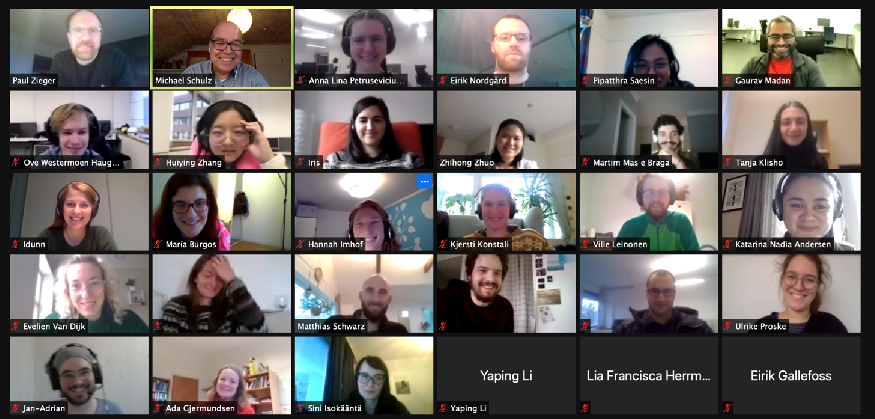Our fourth 10-day course and FORCeS winter school on e-science tools for climate research has successfully been held 4th – 13rd of November 2020. It was originally planned to be held in Tjärnö, Sweden but had to be moved unfortunately to the virtual space due to COVID. The course originates from a series of courses organised among the Nordic partners Stockholm University (ACES), University of Helsinki and the Norwegian Meteorological Institute/University of Oslo. This year the partners from Oslo and Stockholm linked also with resources from the new EU project FORCeS, attracting a series of great lecturers with knowledge on constraining aerosol forcing. Lectures were given on climate data, climate forcing and feedbacks, historical climate evolution, aerosol and cloud processes and modelling, as well as volcanic aerosols and tools used for model-measurement evaluation. The focus was set around the evaluation of the recent earth system models (CMIP6 and AeroCom) using a range of climate and aerosol observations.
23 PhD and master students from various European institutions joined the course, accompanied by 2 teachers, 8 flown-in lecturers and 10 assistants. Student nationalities covered Belgium, Hungary, Brazil, Germany, Russia, Norway, India, Thailand, China, Finland, Greece. Students were introduced to open-source software like Python and Jupyter notebook to analyze, visualize and document climate data, utilizing the Norwegian infrastructure for Research & Education (sigma2) with support from the EOSC-Nordic project. The main part of this course consisted of group work. For this task, the students were grouped into eight groups each led by one assistant, all preparing a result report contained in a Jupyter notebook. During their free time, all participants were longing for the experience of a real joint excursion and course. However, zoom, interactive etherpad discussion notes and the shared analysis platform at sigma2 provided an intensive study experience nevertheless. The next course will take place in fall 2021 hopefully then in Tjärnö, Sweden. The course was co-funded by the FORCES EOSC-NORDIC EU project, the University of Oslo as part of the master course GEO4990/9990, CHESS and the Bolin Centre.
Further information can be found at:
– https://www.aces.su.se/research/projects/escience-tools-in-climate-science-linking-observations-with-modelling/
– https://nordicesmhub.github.io/forces-2020/intro.html
– https://www.eosc-nordic.eu
– https://forces-project.eu
– https://www.sigma2.no
Text: Michael Schulz, Paul Zieger
Photo credit: Michael Schulz

